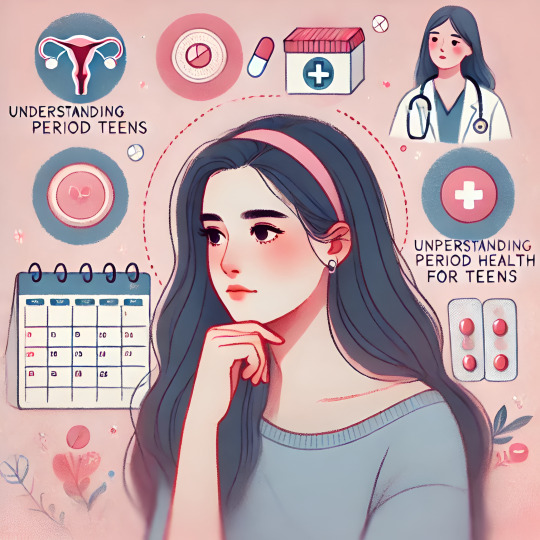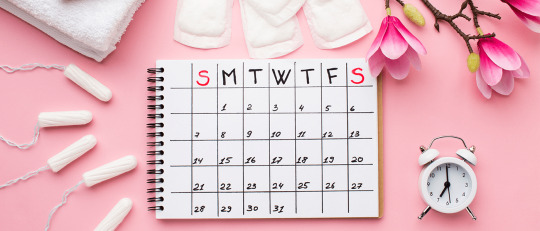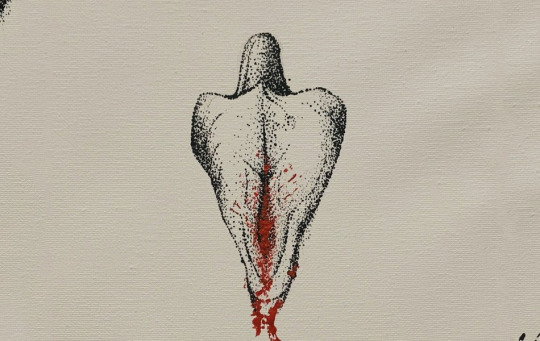#PeriodAwareness
Explore tagged Tumblr posts
Text
Once a month, her brain shifts into overdrive while her body falls apart. It’s poetic, really.
#PeriodPower#BrainOverdrive#PoeticTruth#WomensHealth#MonthlyShift#MindOverMatter#FeminineStrength#PeriodTalk#RealTalk#Empowerment#RespectWomen#SoftAesthetic#PeriodAwareness#TumblrStory#Understanding#GirlPower
0 notes
Text
Revolutionize Menstrual Hygiene with Sani Pro Green's Waste Management Solutions!
Discover how Sani Pro Green is leading the way in menstrual hygiene with revolutionary waste management solutions. From low-temperature thermal destruction to repurposing waste into recycled products and construction materials.





#menstrualhygiene#periodpositive#menstrualcare#periodempowerment#menstrualhealth#menstruationmatters#periodawareness#endperiodstigma#breakthetaboo#periodsupport
0 notes
Text
Period Talk - Join Me!
Imagine you’re having the best day ever. The sun is shining, your to-do list is getting crushed (look at you, productivity queen!), and you’re practically skipping with joy. Then, BAM! Out of nowhere, your mood takes a nosedive. Suddenly, you’re feeling grumpy and sad, and you’re not even sure why. That bright, bubbly feeling from just minutes ago? Gone. A few hours later, you notice that…
#BloggerLife#BloggersOfWordPress#BloggingTips#BodyPositivity#BreakTheTaboo#ContentCreator#CulturalTaboos#CycleSyncing#DigitalContent#EmpowerWomen#EndPeriodStigma#FeminineHealth#HealthEducation#HormonalHealth#HormoneHealth#MenstrualCycle#MenstruationMatters#mind scrolls#MindScrollsBlog#PeriodAwareness#PeriodPain#PeriodTalk#PMSRelief#SelfCareTips#SEOWriting#Wellness#WomenEmpowerment#WomenHealth#WordPressBlog#WritingCommunity
0 notes
Text
Understanding Period Problems in Teenage Girls: Causes, Concerns, and Solutions
Periods can be challenging for teenage girls, with many experiencing discomfort and irregularities that cause both physical and emotional strain. During adolescence, a girl’s body undergoes significant hormonal changes, which often brings about period-related issues such as irregular cycles, cramps, and heavy bleeding. In this article, we will delve into common period problems faced by teenage girls, why these issues can be particularly concerning for them, and how Dr. Gayatri Kar Soni, one of the Best gynaecologist for Periods problems in south Delhi, can offer solutions and support.
Why Do Teenage Girls Experience Period Problems?
The menstrual cycle in teenage girls is influenced by a variety of biological and environmental factors, and it can take years for their cycles to regulate. Here are some common reasons:
Hormonal Imbalance The onset of puberty brings a surge in hormones, which can lead to irregular periods. The body is still adjusting to these changes, which can result in inconsistent or even missed periods, especially in the first few years after menarche (the first period).
Stress and Lifestyle Factors The pressures of academic life, social dynamics, and physical changes can cause stress, which may disrupt a girl’s menstrual cycle. Additionally, irregular sleeping patterns, poor nutrition, and lack of exercise can also impact menstrual health.
Polycystic Ovary Syndrome (PCOS) A common condition among teenage girls, PCOS leads to hormonal imbalances that can cause irregular periods, excess hair growth, acne, and sometimes weight gain. PCOS requires medical diagnosis and treatment to help manage these symptoms effectively.
Diet and Body Weight Extreme weight loss, gain, or restrictive diets can impact a girl’s menstrual cycle. A balanced diet is essential to maintaining a regular period, as the body needs adequate nutrition to support healthy hormone production.
Underlying Health Conditions Conditions such as thyroid disorders, diabetes, and other hormonal imbalances can contribute to irregular or painful periods. These conditions often require medical intervention to regulate hormone levels.

Common Period Problems in Teenage Girls
Teenage girls frequently encounter the following period issues:
Irregular Periods: During the early years of menstruation, cycles may be inconsistent. This irregularity is generally normal but can sometimes indicate an underlying condition.
Painful Periods (Dysmenorrhea): Menstrual cramps are common, but severe cramps can interfere with daily activities and cause distress.
Heavy Menstrual Bleeding (Menorrhagia): Excessive bleeding can lead to fatigue, anemia, and other health complications.
Premenstrual Syndrome (PMS): Many girls experience mood swings, bloating, and other symptoms before their periods, which can impact their mental and emotional well-being.
Why Are Period Problems a Concern for Teenage Girls?
Teenage girls often worry about their periods for several reasons:
Discomfort and Physical Pain: Pain and cramps can disrupt their routine, affecting school attendance, social activities, and even self-esteem.
Fear of Stigmatization: Discussing periods is often still seen as taboo in some social circles. Many girls feel uncomfortable talking about their concerns, which can lead to anxiety and confusion.
Impact on Mental Health: PMS, mood swings, and hormonal changes can lead to emotional ups and downs, making teenage girls more vulnerable to stress, anxiety, and sometimes depression.
Concerns About Future Fertility: Girls experiencing irregular periods or conditions like PCOS may worry about their future reproductive health.
Misconceptions and Lack of Knowledge: Many teens receive limited education on menstrual health and may not fully understand what is normal, making them more prone to unnecessary worry about their symptoms.
Dr. Gayatri Kar Soni: A Trusted Best gynaecologist for Periods problems in south Delhi
For teenage girls experiencing period-related issues, expert guidance is essential. Dr. Gayatri Kar Soni is a highly respected gynecologist in South Delhi, known for her compassionate approach and expertise in addressing menstrual and reproductive health issues. Dr. Soni helps young girls understand their bodies and provides treatments tailored to each patient’s needs, including managing irregular cycles, alleviating painful symptoms, and addressing conditions like PCOS.
With her extensive experience and patient-centered care, Dr. Soni empowers girls and young women to take charge of their health, ensuring they are well-informed and comfortable discussing their concerns. Her holistic approach includes lifestyle recommendations, medication when necessary, and education on menstrual health, all designed to give teenage girls confidence and reassurance regarding their period health.
When to Seek Help for Period Problems
While it’s normal to experience some irregularity at the beginning of menstruation, certain signs may warrant a visit to a gynecologist, especially if a girl experiences:
Extremely painful cramps that interfere with daily activities
Heavy bleeding that lasts more than seven days
Periods occurring more than once a month or less than once every three months
Severe mood swings or signs of depression related to menstruation
Any symptoms that seem unusual or concerning
Tips for Managing Period Problems in Teenage Girls
Stay Active: Physical activity helps reduce cramps and improve mood.
Maintain a Balanced Diet: Nutrient-rich foods support hormonal health and reduce PMS symptoms.
Track the Menstrual Cycle: Using a calendar or an app can help identify patterns and potential issues.
Seek Support: Encourage open discussions about menstrual health at home and school.
Conclusion
Menstrual issues can be challenging for teenage girls, but understanding these issues is the first step toward managing them effectively. With the right guidance from experts like Dr. Gayatri Kar Soni, teenage girls in South Delhi have access to compassionate and knowledgeable care to address their menstrual concerns. By breaking the stigma around periods and encouraging informed discussions, we can help teenage girls lead healthy, confident lives.
For further assistance, parents and teenage girls should consider consulting a professional like Dr. Gayatri Kar Soni, who can provide individualized care and advice for a smoother, healthier journey through adolescence.
#TeenageHealth#MenstrualHealth#PeriodProblems#AdolescentCare#PCOS#HormonalHealth#GynecologistInSouthDelhi#DrGayatriKarSoni#HealthyPeriods#MenstrualWellness#TeenCare#PeriodAwareness#Dysmenorrhea#Menorrhagia#PMS#ReproductiveHealth#WomensHealth#BalancedHormones#HealthEducation#CompassionateCare
0 notes
Text

Did you know? Your period health is a vital sign of your overall well-being.
A menstrual cycle is a natural, recurring process in women’s health that reflects hormonal changes, with the regularity and symptoms of periods being key indicators of overall reproductive health.
Your menstrual cycle is more than just a date on the calendar; it’s a key indicator of your overall health. Understand your body better with insights from Dr. Pritam Tambekar, specializing in women’s health at High Street Clinic.
https://highstreetclinics.com/
#WomenHealth#PeriodAwareness#MenstrualHealth#Gynaecology#DrPritamTambekar#HighStreetClinic#HealthMatters#gynecologist#pcodawareness#pcod treatment#fertility#women health#infertility#pune#endometriosis
0 notes
Text
Menstrual Health Awareness: Cycle Health Tips
Menstruation marks a key phase in girls' lives, but myths often limit awareness, leading to poor hygiene and stress. Access to affordable products and sanitation is vital. Learn more tips for better menstrual health in this blog. read more : https://toneop.care/blogs/menstrual-health-awareness
0 notes
Text
Attention all women! It's crucial to know what's normal and what's not during your period. If you're experiencing these could be signs of underlying issues.
Don't ignore these symptoms.

#ORAAH#menstruationpain#menstrualhealth#womenshealth#periodawareness#takecareofyourself#menstrualsymptoms
1 note
·
View note
Text
Understanding Your Cycle: A Comprehensive Guide to Period Tracking

Introduction:
Understanding your menstrual cycle is crucial for maintaining reproductive health and overall well-being. Period tracking, facilitated by modern period tracker apps, allows individuals to monitor and comprehend their unique cycle patterns. In this comprehensive guide, we'll delve into the significance of period tracking, how to do it effectively using period tracker apps, and why it's essential for every person with a menstrual cycle.
Why Track Your Period?
Tracking your period goes beyond merely marking the start and end dates of menstruation. It provides valuable insights into your reproductive health and overall wellness. By recording the duration and intensity of your periods, along with associated symptoms like cramps, mood changes, and energy levels, you can identify patterns and abnormalities that may require attention.
Benefits of Period Tracker Apps
Period tracker apps have revolutionized the way individuals monitor their menstrual cycles. These apps offer features like customizable cycle predictions, symptom tracking, ovulation prediction, and reminders for upcoming periods or fertility windows. Additionally, many apps allow users to input additional health data, such as sexual activity, medication usage, and lifestyle factors, enabling a more comprehensive understanding of their cycle.
How to Use a Period Tracker App
Using a period tracker app is simple and user-friendly. Begin by downloading a reputable app from your smartphone's app store. Upon opening the app, input basic information such as your last period start date and average cycle length. As you continue to track your periods, the app will refine its predictions and insights based on your data. Remember to update the app regularly with any changes in your cycle or symptoms for the most accurate results.
Understanding Your Cycle
Your menstrual cycle is divided into four phases: menstruation, the follicular phase, ovulation, and the luteal phase. Menstruation marks the shedding of the uterine lining, while the follicular phase involves the maturation of ovarian follicles. Ovulation occurs when a mature egg is released from the ovary, followed by the luteal phase, characterized by increased progesterone levels in preparation for a potential pregnancy.
Conclusion:
Tracking your period using a period tracker app empowers you to take control of your reproductive health. By gaining insights into your cycle patterns and symptoms, you can better understand your body and detect any irregularities that may warrant medical attention. Start tracking your period today and embark on a journey of self-awareness and empowerment.
#PeriodTracker#MenstrualCycle#TrackYourCycle#FertilityAwareness#ReproductiveHealth#PeriodAwareness#CycleTracking#WomenHealth#EmpowerYourCycle
0 notes
Text
MENSTRUATION HISTORY

Menstruation, the regular discharge of blood and mucosal tissue from the inner lining of the uterus, has been a fundamental aspect of human biology and reproductive health throughout history. While the biological process itself remains constant, the social, cultural, and medical attitudes towards menstruation have varied significantly across different cultures and time periods. Here is an overview of how menstruation has been perceived and managed in history:
Ancient Cultures:
In many ancient cultures, menstruation was often associated with concepts of fertility and power. In some societies, menstruating women were even considered sacred due to their connection with the life-giving force of reproduction. For example, in ancient Egypt, menstrual blood was believed to have protective and healing properties.
Religious and Superstitious Beliefs:
Some societies held superstitious beliefs about menstruation. Women were often isolated or considered impure during their periods. In Hinduism, for instance, menstruating women were historically kept separate from others and considered ritually impure. Similar practices were found in various other cultures and religions.
Medical Understanding and Misunderstanding:
Throughout much of history, there was limited understanding of the biological processes involved in menstruation. Many societies attributed menstrual symptoms to mysterious causes, and various remedies and rituals were practiced to alleviate discomfort. It wasn't until more recent centuries that a more accurate understanding of the menstrual cycle emerged.
19th Century:
The 19th century marked a significant period of change in how menstruation was understood. Medical knowledge about the female reproductive system advanced, leading to the development of more accurate explanations for menstruation. However, the topic was still surrounded by taboos, and open discussions were uncommon.
20th Century:
Menstruation started to be viewed more openly as medical advancements continued. The invention and widespread use of disposable sanitary products, like tampons and pads, in the mid-20th century significantly transformed how menstruating individuals managed their periods. Menstrual hygiene became a focus, and education about menstruation started to become more common.
Feminist Movement :
In the latter half of the 20th century, feminist movements played a crucial role in destigmatizing menstruation. Activists advocated for open conversations about periods, challenging the shame and secrecy that had surrounded the topic for centuries. This led to greater awareness, improved menstrual education, and initiatives to make menstrual products more accessible.
Contemporary Attitudes:
Today, attitudes toward menstruation vary widely across cultures and regions. While many societies have made strides in normalizing conversations about periods and providing better menstrual education, there are still places where stigma and misinformation persist. Additionally, discussions around menstrual equity, access to affordable menstrual products, and the impact of menstruation on various aspects of life, such as education and work, continue to be important topics.
In conclusion, the history of menstruation reflects the complex interplay of cultural, religious, medical, and social factors. Over time, there has been a gradual shift from superstition and secrecy to greater understanding and acceptance, although challenges related to stigma and inequity still persist in various parts of the world.
#MenstruationMatters#PeriodPositive#PeriodPower#MenstrualHealth#PeriodAwareness#PeriodEducation#KnowYourFlow#PeriodProud#MenstrualHistory#PeriodCulture#PeriodStories#MenstrualRights#PeriodEquality#PeriodEmpowerment#PeriodPoetry#MenstrualMyths#PeriodFacts#HistoricalPeriods#MenstrualRevolution#PeriodArt
1 note
·
View note
Text










🎉 Blessed Care International Foundation visited Monome M.A. Basic School, Akatsi South, to educate students on menstrual hygiene and donated sanitary pads and drinks. Empowering young girls for a brighter future! 🌟
#BlessedCareInternational #MenstrualHygiene #GirlsEmpowerment #AkatsiSouth #MonomeMABasic #EducationMatters #HealthForAll #BreakingStigma #SupportTheGirls #CommunityImpact #GirlChildEducation #HygieneMatters #DignityForAll #EndPeriodPoverty #CharityWork #YouthSupport #SanitationForAll #PadsForGirls #PeriodAwareness #GirlsInSchool #CommunityDevelopment #HopeForFuture #NGOImpact #InclusiveSociety #WomenEmpowerment #FaithInAction #RuralSupport #BCIInitiatives
0 notes
Link
0 notes
Photo

Depending on the level of your #periodpain, CBD can be used in many ways, from relaxing moods, stress, and physical discomfort. With many holistic remedies it can take some tweeking to find the correct dosage for you. 🌺🌿 SHOP in BIO 🛒 . . . . #periodpains #periodcramps #periodproblem #periodawareness #periodontime #cystawareness #cysticfibrosis #pcoswarrior #endometriosisawareness #cbdforpainrelief #cbdworks #hempworks #cbdbristol (at Dorset, UK) https://www.instagram.com/p/CKenXYPM6X2/?igshid=gbdp6ylupmo6
#periodpain#periodpains#periodcramps#periodproblem#periodawareness#periodontime#cystawareness#cysticfibrosis#pcoswarrior#endometriosisawareness#cbdforpainrelief#cbdworks#hempworks#cbdbristol
0 notes
Text

Menstrual Health Awareness: Cycle Health Tips Menstruation marks a key phase in girls' lives, but myths often limit awareness, leading to poor hygiene and stress. Access to affordable products and sanitation is vital. Learn more tips for better menstrual health in this blog.
read more : https://toneop.care/blogs/menstrual-health-awareness
0 notes
Photo

Huge thanks to @americanairlinesarena for giving women free sanitary items for their periods! This is absolutely amazing and caring to us women. We need more businesses like this out here... @feminist 🤗 #Joselynv #periodawareness #feminist #explorepage #wemattertoo (at AmericanAirlines Arena) https://www.instagram.com/p/B4fdC16AEco/?igshid=19olciz24ij8b
0 notes
Photo

We know a way you can mute them though! . . . . . . #periodcramps #period #pmsproblems #pms #periodpain #periodproblems #painrelief #periodessentials #periodhacks #menstruationmatters #menstruation #menstrualcramps #menstrualcycle #periodhealth #MenstrualHealth #menstrualtalk #periodtalk #periodeducation #periodawareness #periods #periodpower #periodpositive #periodmemes #menstrualhygiene #reproductivecycle #reproduction #reproductivehealth https://www.instagram.com/p/BzcjwkHhFD4/?igshid=1ksmn1xlumtpy
#periodcramps#period#pmsproblems#pms#periodpain#periodproblems#painrelief#periodessentials#periodhacks#menstruationmatters#menstruation#menstrualcramps#menstrualcycle#periodhealth#menstrualhealth#menstrualtalk#periodtalk#periodeducation#periodawareness#periods#periodpower#periodpositive#periodmemes#menstrualhygiene#reproductivecycle#reproduction#reproductivehealth
0 notes
Text

In India, 23 million girls drop out of school early when they start menstruating, and many end up facing acute health problems.
Right from being treated as “untouchables”, to being forced into early marriages, the taboo around menstruation has adversely impacted lakhs of women for centuries. Only 36 percent use a sanitary napkin's bare essential of menstrual hygiene.
Highlighting this, a UNICEF study states that 71 percent of adolescent girls in India remain unaware of menstruation until they get their first period.
To promote menstrual hygiene and awareness, Parkshala has conducted menstrual hygiene workshops and Sanitary Pad Drives!
Source: NDTV . . . . . . #menstrualhygiene#periods#sanitarynapkins#mentrualawareness#periodawareness#periodpoverty#menstrualproducts#menstruation#menstrualcycle#womenempowerment#girlpower#ngo#girlsmatter#charity#india#nonprofit#inspiration#support#womensupportingwomen#girls#volunteer#women#girlchildempowerment#thegirlchild#ourgirls#parkshala#delhi#NCR#educategirls
0 notes